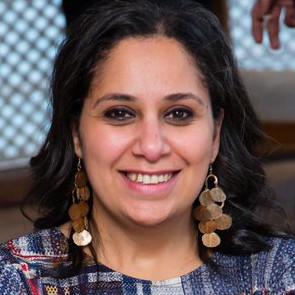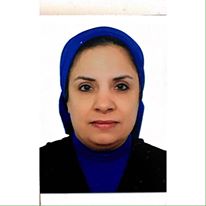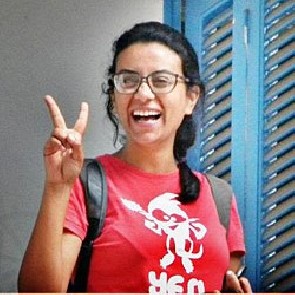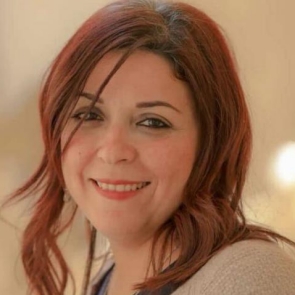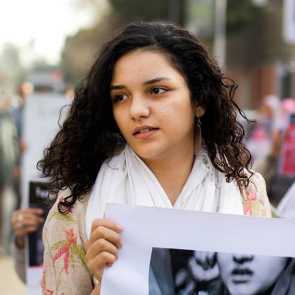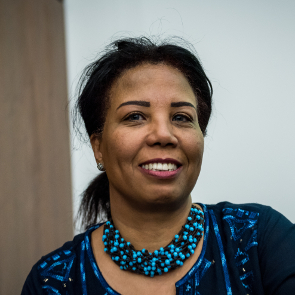Women human rights defenders in Egypt continue to suffer judicial harassment, reprisals and violations of their basic human rights
In the context of the ongoing pre-sessional Working Group for the 79th session of the Convention on the Elimination of All Forms of Discrimination Against Women (CEDAW), from 7 to 13 November 2020, Front Line Defenders regrets that prominent Egyptian women human rights defenders, and the organisations they run, continue to face severe forms of reprisals. Women human rights defenders who stand up for a diverse range of human rights and freedoms in the country are subject to judicial harassment, arbitrary detention or have their work heavily restricted by authorities. Women human rights defenders are frequently criminalised, with many placed in preventive detention for two years or longer, where they are held in inhumane conditions, and where they can be arbitrarily denied access to their lawyers and families or prevented from travelling to court rooms for their own detention renewal hearings.
Women human rights defenders, such as Esraa Abdel Fattah, Mahienour El-Masry and Solafa Magdy have been held in preventive detention since 2019 where they continue to be denied their basic rights as prisoners. Others, such as Sanaa Seif, have been imprisoned more recently. Many women human rights defenders who have avoided detention to date are confronted with other restrictions to their work, such travel bans, which Mozn Hassan, Azza Soliman, and Hoda Abdelwahab have been battling for over four years
Solafa Magdy is a journalist and a woman human rights defender. She is a co-founder of ‘everyday footage’, a school that works on training journalists in mobile journalism. On 26 November 2019, Magdy was detained along with her husband Hossam Saiad and journalist Mohamed Salah, in a coffee shop in Cairo. The couple were forcibly disappeared for just under 24 hours. On 28 November 2019, Solafa Magdy appeared before the State Security prosecutors, who accused her of being involved in case 488, which was opened in March 2019 after several peaceful demonstrations and news stories broke criticising Government mismanagement following the Ramses train station accident. Under case 488, several human rights defenders are still detained including Mahienour El-Masry and Esraa Abdel Fattah. Solafa Magdy is charged with “joining an illegal organisation”, “misuse of social media” and “spreading false news”. The woman human rights defender was reportedly subjected to a severe beating during her interrogation. Since March 2020, she has remained in preventive detention in Qanater prison where prison authorities have banned all family visits; Magdy’s seven year old son has been unable to contact either parent for several months, denying Magdy her rights as a mother.
Woman human rights defender and journalist Esraa Abdel Fattah has been in preventive detention since October 2019 and advocate for prisoner rights Mahienour El-Masry, since September 2019. After being disappeared for 24 hours, the Public Prosecution accused them both of also being involved in case 488. However, almost a year later on 31 August 2020, the Supreme Public Prosecution put the two women human rights defenders under investigation in a new case, No. 855, under which both are charged with a second count of “joining an illegal organisation”.
Women human rights defenders are frequently ill-treated and subjected to physical abuse while in detention. Esraa Abdel Fattah’s lawyer has stated that during her 24 hour interrogation she was blindfolded, handcuffed and severely beaten. She was reportedly forced to give up the password to her phone or be subjected to electric shocks. The defender went on hunger strike several times during her detention to protest against the ill-treatment and torture she has been subjected to. Abdel Fattah was subjected to a sexualised defamation campaign shortly after her arrest in 2019. A State-owned newspaper accused the woman human rights defender of being in a relationship with the male colleague with whom she was arrested. Such sexualised defamation campaigns are an additional challenge to Egyptian women human rights defenders’ work, and are aimed at discrediting them for challenging gender roles in the largely conservative society.
On 23 June 2020, Sanaa Seif was abducted by security officers outside the office of the Public Prosecutor. A number of hours later she reappeared before the Public Prosecutor, who sentenced her to 15 days of preventive detention. She was charged with “spreading false rumours”, “inciting terrorist crimes” and “misuse of social media”. On 9 August 2020, the Public Prosecution issued her with two additional charges; “verbally insulting a police officer on duty” and “defaming a police officer”. Her next hearing session is scheduled to be held on 10 November 2020.
Other women human rights defenders are targetted for their work by other means, such as through the use of travel bans. Women’s rights defenders Mozn Hassan, Azza Soliman, and human rights lawyer Hoda Abdelwahab have each had the scope of their human rights work limited after being handed down bans on foreign travel, in connection with the ‘illegal foreign funding case’, which began in early 2016. The investigation, known as case 173 involves 41 Egyptian organisations who are under investigation, with some of their leaders and staff members being summoned on charges such as “receipt of illegal foreign funding” and “working without legal permission”. On 18 July 2020, the Criminal Court of North Cairo rejected Mozn Hassan’s appeal against her travel ban. The travel ban imposed on Mozn Hassan and Azza Soliman, is not only considered an obstacle for the two women defenders to proceed with their own work promoting women's rights, but is also an act of intimidation against all those in Egypt who advocate against gender-based discrimination and violence in Egypt.
Although the Egyptian Criminal Code stipulates that preventive detention should only be used in certain circumstances, as an exception to the rule of provisional release, it has become the de facto norm in the persecution of human rights defenders in Egypt. Detentions must be renewed every 15 to 45 days, for a maximum of up to two years. Frequently, the courts hold a single hearing for the renewal of large numbers of prisoners’ detentions, without regard for individual circumstances. The situation has further deteriorated during the COVID-19 pandemic when lawyers and defendants were banned from detention renewal hearings, which took place behind closed doors without regard for at-risk prisoners. Egyptian authorities are increasingly side stepping the two year maximum for preventive detention, by putting detained human rights defenders under investigation in new cases. It is currently unclear whether Esraa Abdel Fattah and Mahienour El-Masry will now be held in detention for an additional year, beginning from the date when the most recent charges were added, on 31 August 2020.
Front Line Defenders is deeply concerned by the continued systemic targetting of women human rights defenders in Egypt, who face multiple obstacles to their work defending human rights. It is particularly concerned by the additional challenges that women human rights defenders face, for challenging gender norms and their role promoting women’s rights in the country. Sexualised defamation campaigns, restricting women’s rights as mothers and shutting down women’s rights movements has a detrimental impact on the environment in which women human rights defenders carry out their work, and on the rights they work to protect and promote. In the context of the pre-sessional Working Group for the 79th session of CEDAW, Front Line Defenders calls on Egypt to guarantee the protection of all women human rights defenders, creating a safe and enabling environment for them to carry out their work by addressing systemic and structural discrimination against all defenders and enacting laws that recognise and protect the specific needs of women defenders.

